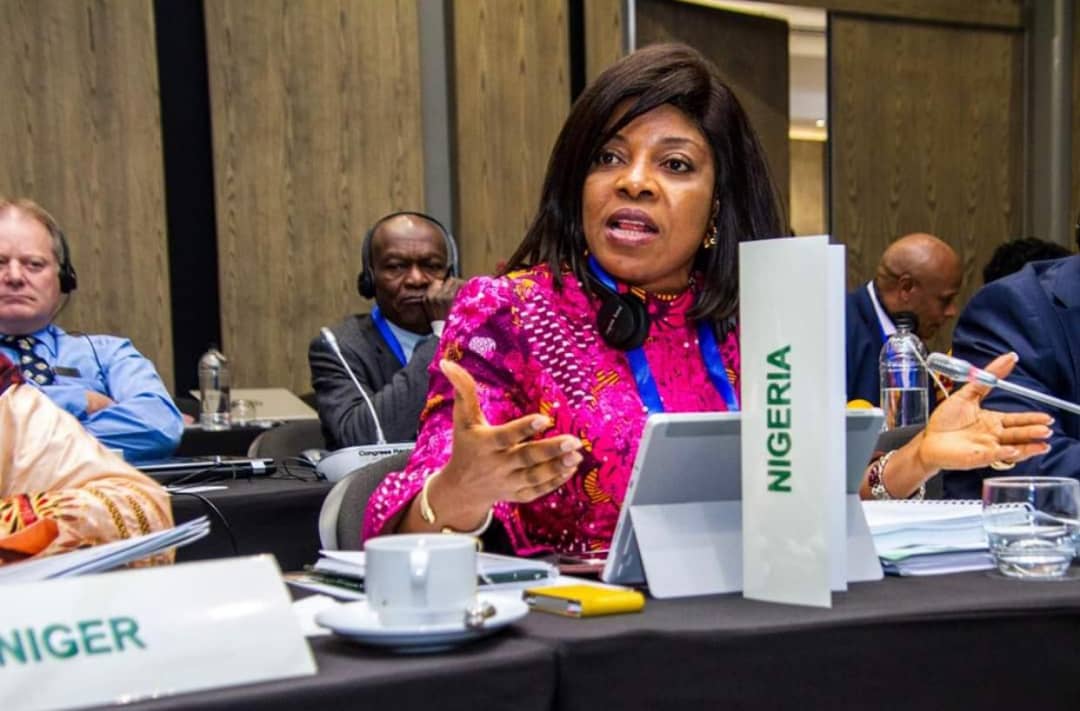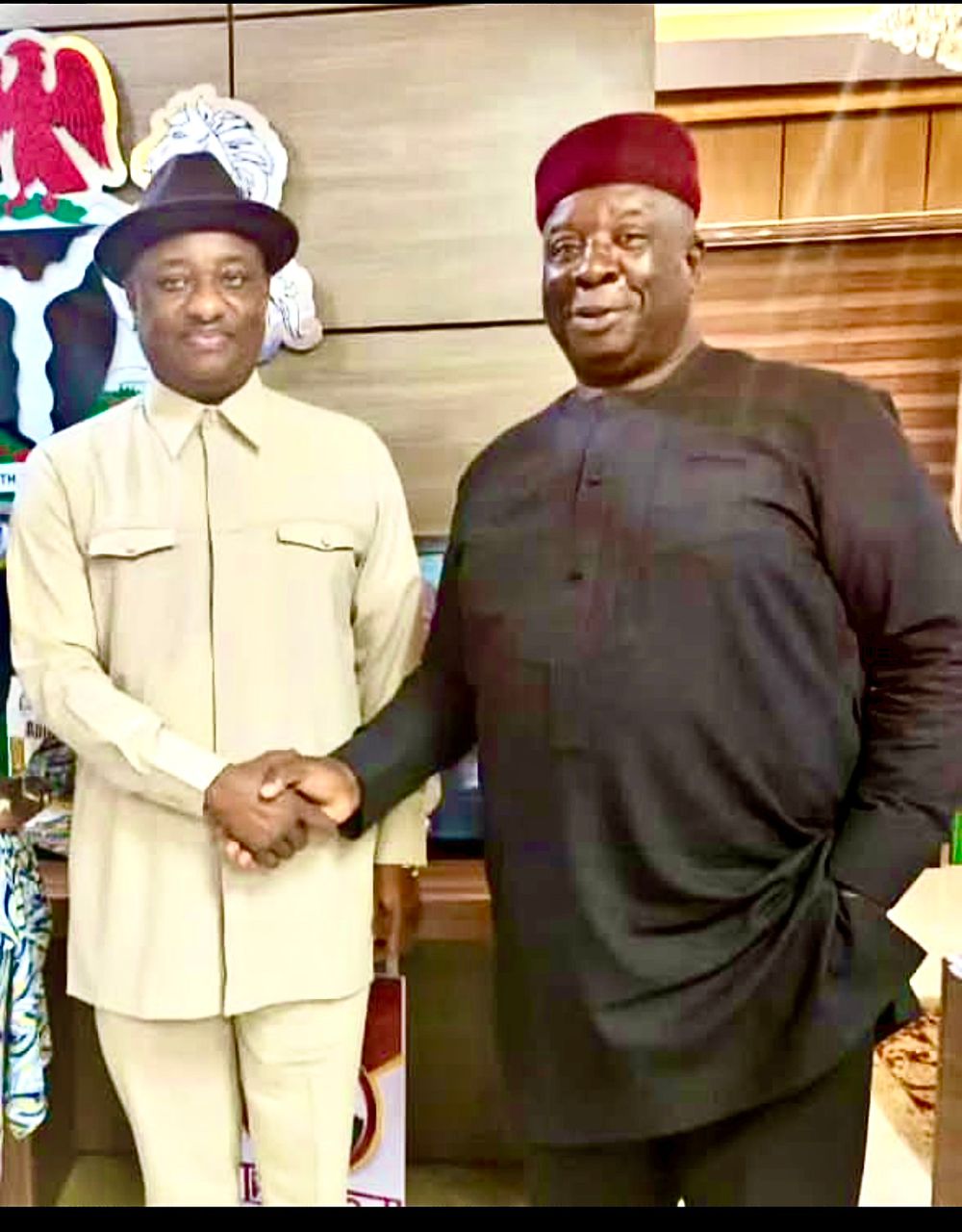Featured
Nigeria’s 2nd Peer Review, AUDA reform’ll boost economy, deepen democracy- AUDA-NEPAD/APRM Boss

The ongoing efforts to conduct the second self-assessment exercise for the nation in specific socio-economic areas will boost socio-economic growth and further deepen democracy in the most populous state in Africa, says Princess Gloria Akobundu, National Coordinator, Chief executive, African Union Development Agency-New Partnership for Africa’s Development/ African Peer Review Mechanism (AUDA-NEPAD/APRM) Nigeria.
This is contained in a statement signed on Wednesday in Abuja by Abolade Ogundimu, Media Assistant to the NC/CEO, AUDA-NEPAD/APRM Nigeria.
Akobundu made this known at the Focal Points Meeting of APRM Continental in Johannesburg, South Africa.
According to Akobundu, President Muhamadu Buhari’s approval for 2nd Peer Review of the Country, transformation of NEPAD to AUDA-NEPAD and inauguration of its National Governing Council (NGC) are geared towards putting the nation on the path of more significant growth.
“President Buhari approved that 2nd Peer Review should be conducted in Nigeria after 11 years, not only to join the three other nations that have done 2nd Peer Review but to make adequate use of the process in order to work on its outcome for greater development.
“That informed why AUDA-NEPAD/APRM NGC members were carefully selected so that they rightly guide the agency in carrying out the review and other mandates.
“Nigeria has inaugurated the council while other steps that will enable the agency to function optimally in the country are already on motion to ensure that the self- assessment phase of the process is transparent.
“Peer review is a voluntary exercise but the current leadership in Nigeria is determined to make it a culture for national growth and political stability.
“We are sure of generating useful data from our second peer review process, bearing in mind all the validating mechanism of the continental secretariat,” she said.
As Nigeria prepares for the launching of AUDA-NEPAD/APRM Reform in September, Akobundu urged other African Countries to embrace the process especially, those that were yet to do the first peer review.
Among other benefits, the Reform’s launching will enhance effective and efficient implementation of AUDA-NEPAD/APRM mandate , speedy economic growth and abundant job creation in the country.
“Africa will attain global and continental developmental goals if individual African Union (AU) nation embraces and comply with mandates of organisations like AUDA and APRM.
“Through APRM, AUDA and other AU organisations, Sustainable Developmental Goal (SDG) 2030 and AU 2063 which geared towards meeting benchmark of basic development of human and mineral resources in every nation,” she said.
The National Coordinator commended Nigeria’s Focal Point, which is the Secretary to the Government of the Federation (S.G.F) in person of Mr. Boss Mustapha for his commitment to mandates of his position in the continental body.
She commended leadership of APRM Continental, led by Eddy Maloka for the support given to Nigeria and other nations that subscribed to its mandate.
APRM Focal Points meeting is part of APRM Continental activities, scheduled fot Aug. 4 -8 in Johannesburg, South Africa.
Featured
CELEBRATING A CENTURY-OLD CIVIL AVIATION SECTOR TRAJECTORY IN NIGERIA

This week, millions of Nigerians and others across the globe will join the Ministry of Aviation and Space Development under the irrepressible leadership of the Honourable Minister, Festus Keyamo(SAN),and all the notable Aviation sector stakeholders in and outside the country,in celebrating a century of Nigeria’s civil aviation history.
There is no doubt that under the present leadership of the Honourable Minister and within the short spell of time in his stewardship,he has consciously and intentionally embarked on a “silent revolution” for the industry with very veritable and laudable landmarks that have consistently grown the industry.
Some of these spirited efforts for instance have consequently led to trust restoration amongst international lessors, financier,any global partners.Of note also is assidiously working for the full domestication and implementation of the “Cape Town Convention Agreement” ,which gives Airlines access to modern fleets of competitive rates as well as enforcement of IDERA(Irrevocable Deregulation and Export Request Authorization).
Having well applauded these vital contemporary initiatives,it will also be germane to cast our minds in retrospect by taking a peep into our history over several decades to recognise some of the notable forebears in the industry whose impressionabl efforts cannot be overlooked,as they took the impetuous initiatives of breaking the ice at the nascent stage.
It will aptly corroborate the truism which says that… ” a journey of a thousand miles starts with one step”.
The above is vividly captured from a tribute by the First Republic Minister of Aviation Chief Mbazulike Amaechi at the funeral of late Igwe of Oba,HRH Peter Ezenwa(MFR) in 2018.
It states inter alia…”One significant thing I will say many people didn’t know is that the first indigenous airline that was to run in Nigeria was known as “STANDARD AIRLINE”.It was founded in 1966 by a company formed by Igwe Peter Ezenwa from Oba,and had on board,John Nwankwu from Abagana,Edward Ebo from Ezinifitte,(all from Anambra state),John Anyaehie from Nkwerre in Imo state,and lastly my very self Mbazulike Amaechi.
The five of us later acquired two brand new aircrafts,and had four pilots,namely;Unachievable,John Emma Ngwu and Felix Offor,who was to be the General Manager of the airline.
But just about the time for the take-off the crisis of the military takeover erupted in the North as the planes were on their way for delivery to us.In fact the bank handling the transaction was to allow the planes to be flown from the USA,but the news of the war broke out in 1967,the insurance company cabled for the cancellation of the deal as they will not be able to cover the risk cost of aircrafts being flown into war zone.
So,we asked the manufacturers to take the two aircrafts back to their country and hold on for six months with the hope of that the war will end within the requested time frame,but the war didn’t end as thought.We consequently asked for refund and they deducted some money and refunded the balance which was deposited at the London branch of African Continental Bank(ACB).
When the government took over the operations of ACB,we still hoped for the refund but unfortunately were disappointed that the Federal government took over the whole money and we lost everything.”
Further in line with our historical perspective,it will also be pertinent some of the later years reformists in the likes of Engr Onyereri and Harold Demuren who advertently sponsored some far reaching regulations that eventually steered the industry towards greater autonomy with the passage of the 2005 Civil Aviation Act,which I was also a prime participant of in my capacity as an Aviation sub chair in then House of Representatives.
As we mark this great century milestone,and with the clear evidential pathway set out by the current managers of the industry under the indomitable leadership of Honourable Minister, I do not see the sky posing any limitations as they say,but rather availing new vistas of limitless growth opportunities.
CONGRATULATIONS.
Hon Chidi Nwogu
Former member House of Representatives & presently Governing Council member
,African Aviation and Aerospace University,Abuja.
-

 Featured6 years ago
Featured6 years agoLampard Names New Chelsea Manager
-

 Featured6 years ago
Featured6 years agoFG To Extends Lockdown In FCT, Lagos Ogun states For 7days
-

 Featured6 years ago
Featured6 years agoChildren Custody: Court Adjourns Mike Ezuruonye, Wife’s Case To April 7
-

 Featured6 years ago
Featured6 years agoNYSC Dismisses Report Of DG’s Plan To Islamize Benue Orientation Camp
-

 Featured4 years ago
Featured4 years agoTransfer Saga: How Mikel Obi Refused to compensate me After I Linked Him Worth $4m Deal In Kuwait SC – Okafor
-
Sports3 years ago
TINUBU LAMBAST DELE MOMODU
-

 News12 months ago
News12 months agoZulu to Super Eagles B team, President Tinubu is happy with you
-
Featured6 years ago
Board urges FG to establish one-stop rehabilitation centres in 6 geopolitical zones
